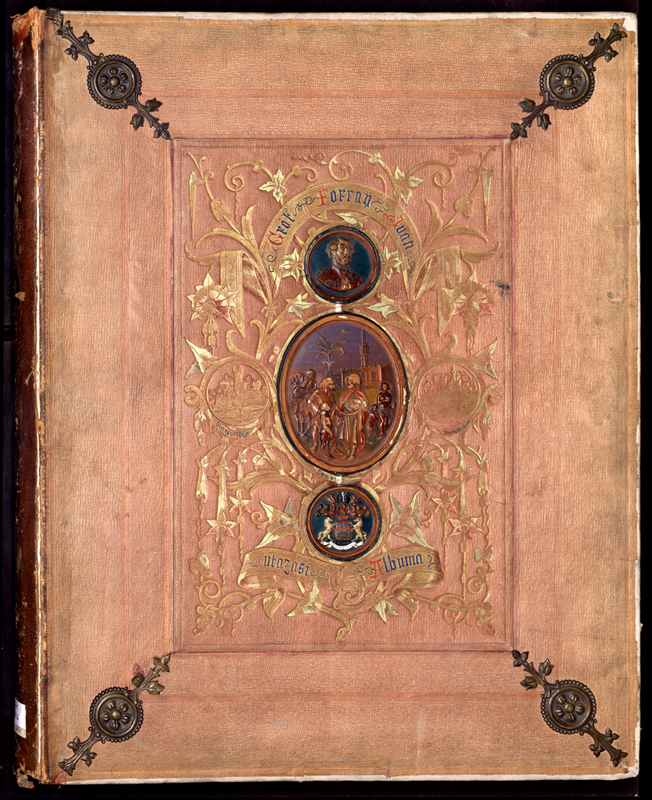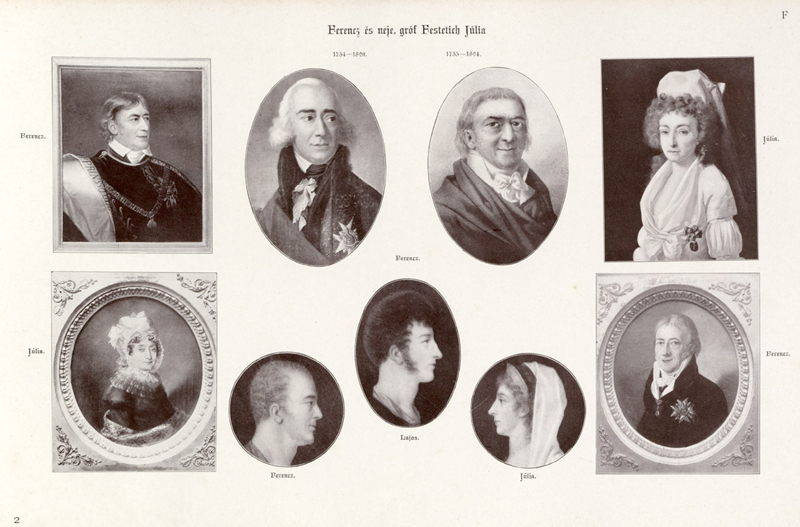 The achievements of great Hungarian scientists and scholars are represented by a very rich selection of works by the two Bólyais, Sándor Kőrösi Csoma, Ányos Jedlik, Ignác Semmelweis, Antal Reguly and Loránd Eötvös.
The achievements of great Hungarian scientists and scholars are represented by a very rich selection of works by the two Bólyais, Sándor Kőrösi Csoma, Ányos Jedlik, Ignác Semmelweis, Antal Reguly and Loránd Eötvös.
National Széchényi Library has always made efforts to collect bibliophile editions as well. Its collection contains a great amount of the masterpieces of Hungarian printers and illustrators. Catalogue description always indicates their name, so we know exactly, for example, how many Hungarian artists (including Mihály Zichy) have been inspired by Imre Madách’s “The Tragedy of Man” to provide illustrations to accompany the text.
The existing collection is continuously enhanced by comparing the offerings of auction catalogues with the holdings of the Library and by purchasing items, not yet present in the collection. Since 1952 when NSZL started receiving two copies of every domestic publication, one copy is always excluded from daily use. The Library also endeavors to obtain a second copy of important works published before 1952. If necessary, additional copies are purchased to satisfy the demands of readers and the internal research activities of National Széchényi Library.
The foreign collection is being enhanced by purchase, by exchange and by gifts, both in the field of current and retrospective publications. The Library has never been satisfied with collecting only rare and significant items. Even during the last century, NSZL deliberately acquired foreign publications which, at the time, appeared to be of little or no significance (modest textbooks, forgotten travel books), but contained some meaningful reference to Hungary. In this way, it was possible to use the collection to track down the tragic Diaspora of the Kossuth emigration following the 1948 revolution, the emigration at the end of the 19th century, and other significant social or historic manifestations and events. The extensive document collection of the Viennese and other emigrations following World War I is especially valuable.
Starting with the 1920s, the Library began to collect the works of Hungarians living in the neighboring countries, published in Hungarian. In view of the serious economic depression of the time and due to problems during the decades following World War II, this endeavor has only been partially successful. Conditions improved gradually and today it is possible to acquire almost every such publication. Also, there is an ongoing effort to fill the existing gaps. In addition to works published abroad in Hungarian, an increasing number of Hungarian works in foreign translation are being received by National Széchényi Library.
These books, representing both the former and present Hungary, and books written in Hungarian abroad or being relevant to Hungary, make this collection of considerable importance for researchers of Hungary’s neighboring countries. It is not just a matter of this collection being the repository of the written past of nations living side by side for centuries, but it is also the repository of an almost complete set of all the books printed in Hungary since the end of the 13th century, in Slovak, Serbian, Romanian, Bulgarian and Greek. The multidirectional wealth of the collection provides valuable source material not only for Hungarian research fellows but also for a much broader, East-Central European research activity.
 The collection of foreign books is based on the 1819 donation by Count Széchényi from his second, so-called “Sopron Collection”. This has been significantly enlarged by subsequent donations, purchases and exchanges.
The collection of foreign books is based on the 1819 donation by Count Széchényi from his second, so-called “Sopron Collection”. This has been significantly enlarged by subsequent donations, purchases and exchanges.
The literature of 18th century Freemasonry and the French Enlightenment is very well represented. There are numerous first editions of works by Rousseau, Voltaire and Diderot. Of the masterpieces of the classical period of German literature and science, Kant, Lessing, Schiller, Goethe and Heine are represented mainly by “editiones princeps”. English literature is similarly represented with first editions of Byron, Tennyson, Swinburne and Browning. Among the giants of science, Hegel, Marx, Darwin, Mendeleev and Einstein are just some, whose works or first editions of works are represented in this collection.
Basic literature dealing with the Finno-Ugric people, their language and culture as well as the literature of Hungary’s neighbors are equally well represented in this collection.
In addition to hungarica material, National Széchényi Library also collects foreign- literature textbooks and reference materials which are regarded as relevant and important for research in the history of Hungarian literature, linguistics and historiography.
Particular care is devoted to the enhancement of the holdings in textbooks, handbooks and reference books needed for study or research activities and for the proper assessment and processing of NSZL’s collections.
Easy access to NSZL’s General Collection is provided by a number of catalogues including traditional card catalogues and also online databases. Alphabetical and reference card catalogues include only those books which were published before 1991. Works published in and after 1992 are available in the online database dubbed NEKTÁR (OPAC).

 National Széchényi Library has always aimed at acquiring a complete set of all the books published in Hungary. The Library relies primarily on legal deposit copies provided by various printing and publishing houses. Being Hungary’s national library, NSZL is supposed to collect each and every edition of publications published in Hungary. At the same time, it also does its best to search for and purchase books published in Hungarian outside Hungary, works by Hungarian authors published in any language, works translated from Hungarian into any language and, last but not least, all the Hungary-related publications.
National Széchényi Library has always aimed at acquiring a complete set of all the books published in Hungary. The Library relies primarily on legal deposit copies provided by various printing and publishing houses. Being Hungary’s national library, NSZL is supposed to collect each and every edition of publications published in Hungary. At the same time, it also does its best to search for and purchase books published in Hungarian outside Hungary, works by Hungarian authors published in any language, works translated from Hungarian into any language and, last but not least, all the Hungary-related publications.


